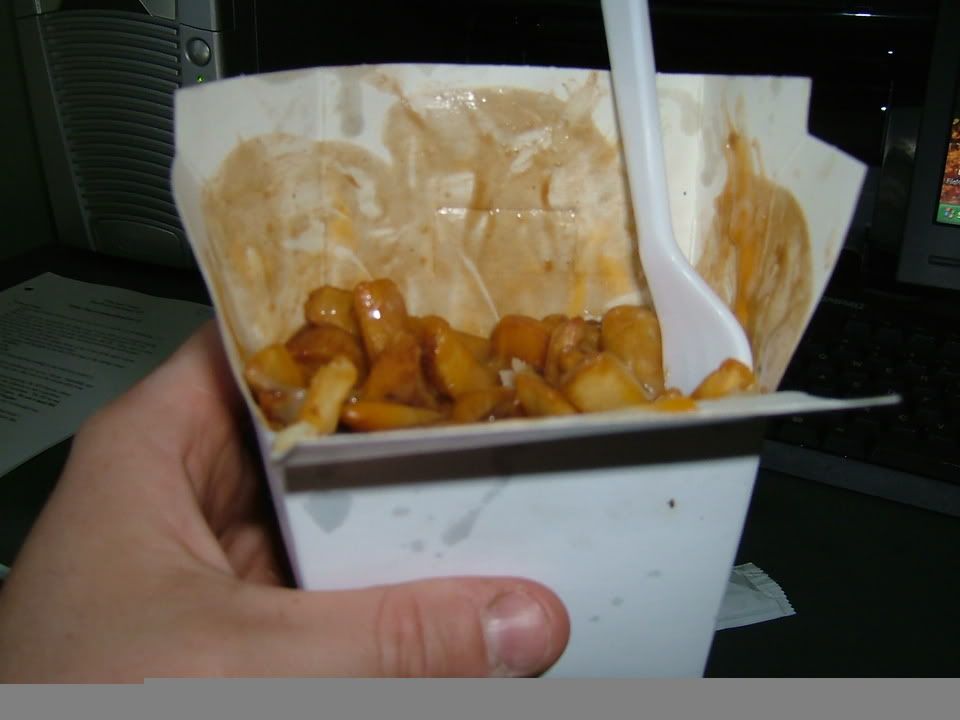My first experience with the vicissitudes of cross-cultural language took place in my first year of University. My roomate from Pakistan, who spoke excellent English, asked me what the phrase "Dijeetjet" meant. I had absolutely no idea what he was talking about, and asked him to explain the context. He said he was standing outside the cafeteria, and a American friend asked "Dijeetjet"?
Only then did I realize that he was asked, "Did you eat yet"?
That experience has colored my perceptions ever since. I've gained an appreciation for the role that
context plays in language, and how meaning is easily misconstrued. It's awfully difficult, for example, to assume that a fundametalist knows exactly what the writers of scripture intended when the original ideas were converted from Aramaic to Greek, and finally into English without an extensive knowledge of culture over the last 2000 years. I would guess that any competent linguist would dismiss claims of Biblical inerrancy out of hand. The same can be said for claims about the U.S. Constitution. If you only look at the document without considering what historians have to say about the context, it can be used to justify anything from segregation to holding a vast stockpile of AK-47s in your basement.
When I discuss the role of the constitution with Canadians, they're mystifed by the fact that Americans tend to treat the language of the constitution like it was written in stone. Other countries change their constitution far more often than we do. Could there be some overlap between our perceptions of scripture and the laws of our nation?
Without context, words lose their meaning, but if we approach language as something inextricably linked with culture, we broaden our perspectives immeasurably. As Attaturk once famously remarked, "When you learn another language, you make a second self". Linguist Christopher J. Moore has written a fascinating new book entitled "In Other Words" in which he catalogues some of the world's least translatable expressions. It's a fascinating look at the problems of translation. Here are a few I like:
ilunga (Tshiluba) [ee-Iun-ga] (noun)
This word from the Tshiluba language of the Republic of Congo has topped a list drawn up with the help of one thousand translators as the most untranslatable word in the world. It describes a person who is ready to forgive any transgression a first time and then to tolerate it for a second time, but never for a third time.
Arabic
taarradhin [tah-rah-deen] (noun)
Arabic has no word for "compromise" in the sense of reaching an arrangement via struggle and disagreement. But a much happier concept, taarradhin, exists in Arabic. It implies a happy solution for everyone, an "I win, you win." It's a way of resolving a problem without anyone losing face.
Chinese
guanxi (Mandarin) [gwan-shee] (noun)
This is one of the essential ways of getting things done in traditional Chinese society. To build up good guanxi, you do things for people such as give them gifts, take them to dinner, or grant favors. Conversely, you can also "use up" your guanxi with someone by calling in favors owed. Once a favor is done, an unspoken obligation exists. Maybe because of this, people often try to refuse gifts, because, sooner or later, they may have to repay the debt. However the bond of guanxi is rarely acquitted, because once the relationship exists, it sets up an endless process that can last a lifetime.
Czech
litost [lee-tosht] (noun)
This is an untranslatable emotion that only a Czech person would suffer from, defined by Milan Kundera as "a state of torment created by the sudden sight of one's own misery." Devices for coping with extreme stress, suffering, and change are often special and unique to cultures and born out of the meeting of despair with a keen sense of survival.
Read the Review:
http://www.npr.org/templates/story/story.php?storyId=4457805




